130 Сommon Mistakes in English language (Grammar)
- Подробности
- 40300
1. Look - it rains. OR Look - it's raining.
2. It's often raining here. OR It often rains here.
3. When I was 20 I was smoking. OR When I was 20 I smoked.
4. I have seen Louis yesterday. OR I saw Louis yesterday.
5. We're living here since April. OR We've been living here since April.
6. I'll phone you when I will arrive. OR I'll phone you when I arrive.
7. I'm not believing him. OR I don't believe him.
8. I am born in Chicago. OR I was born in Chicago.
9. My sister has 15 years. OR My sister is 15 (years old).
10. I have cold in this house. OR I am cold in this house.
11. I can to swim. OR I can swim.
12. I must see the dentist yesterday. OR I had to see the dentist yesterday.
13. I want go home. OR I want to go home.
14. I came here for study English. OR I came here to study English.
15. I drove there without to stop. OR I drove there without stopping.
16. Where I can buy stamps? OR Where can I buy stamps?
17. Is ready my new office? OR Is my new office ready?
18. I'm no asleep. OR I'm not asleep.
19. She looked, but she didn't see nothing. OR She looked, but she didn't see anything.
20. Where is station? OR Where is the station?
21. My sister is photographer. OR My sister is a photographer.
22. You speak a very good English. OR You speak very good English.
23. The life is difficult. I haven't got some free time today. OR Life is difficult. I haven't got any free time today.
24. Everybody were late. OR Everybody was late.
25. It is more cold today. OR It is colder today.
26. It's too much hot in this house. OR It's too hot in this house.
27. The man which lives here is from Greece. OR The man who lives here is from Greece.
28. The people in this town is very friendly. OR The people in this town are very friendly.
29. She never listens me. OR She never listens to me.
30. We went at the seaside on Sunday. OR We went to the seaside on Sunday.
Look – говорит, что действие происходит в данный момент. Необходимо использовать Present Continuous (Look - it's raining).
Often – говорит, что действие регулярное. Необходимо использовать Present Simple (It often rains here).
Past Continuous не является не используется для того, чтобы говорить о повторяющихся действиях или привычках.
Также, когда мы говорим «как долго» что-то продолжалось в прошлом, мы используем Past Simple.
• I rang the bell six times.
Я позвонил в колокол 6 раз.
• When I was a child we made our own amusements. (not we were making)
Когда я был ребенком, мы делали свои собственные развлечения.
Однако Past Continuous возможно, если повторные действия образуют «фон» для основного действия.
• At the time when it happened, I was traveling to New York a lot.
В то время, когда это случилось, я часто ездил в Нью-Йорк.
Present Perfect не используется с уточнениями такими как yesterday, when he came, at 7.
Present Perfect используется для связывания событий с настоящим. С апреля по настоящий момент.
If и when могут связать две части предложения. Мы часто используем Present Simple непосредственно после этих слов, хотя и говорим о будущем.
Поразмышляйте над этими глаголами. Они не используйются в Present Continuous. Их сложно «растянуть», они сами по себе длящиеся, в них уже содержится континуальность.
|
Emotions (love, hate) |
эмоции (любить, ненавидеть) |
|
Mental activity (remember, understand, think, believe) |
умственная деятельность (помнить, понимать, думать, верить) |
|
Wants (need, want) |
желания (нуждаться, хотеть) |
|
Perceptions (hear, see) |
восприятия (слышать, видеть) |
|
Appearance (seem) |
впечатление (казаться) |
|
Possession (have, own) |
обладание (иметь, владеть) |
Я был рожден в Чикаго.
Возраст выражается глаголом to be, в нашем варианте is.
Физические состояния выражаются с помощью глагола to be.
Когда мы говорим о голоде, жажде, жаре, холоде и некоторых других физических состояниях, мы обычно используем глаголы to be или to feel + прилагательное.
Но не to have + существительное.
Обратите внимание на следующие выражения:
be hungry (not have hunger)
be thirsty
be warm
be hot
be cold
be sleepy
be afraid
А также:
be right
be wrong
be lucky
После модальных глаглов мы не ставим to.
Must не используется в прошедшей форме.
Чтобы перевести глагол в форму инфинитива, перед ним ставится to.
Мы часто используем инфинитив, чтобы сказать о цели человека - почему он или она что-то делает.
• I sat down to rest, (not I sat down for resting /for to rest.)
He went abroad to forget about his problems.
• I'm going to Austria to learn German.
To switch on, press red button.
Мы также можем использовать in order to (более формальный стиль) или so as to.
• He got up early in order to have time to pack.
• I moved to a new flat so as to be near my work.
In order to и so as to часто используются перед статическими глаголами be, know и have.
• I watched him in order to know more about him.
(Более естественно, чем I watched him to know more about him.)
Мы также используем in order to и so as to для отрицания.
• I'm going to leave now, so as not to be late.
(I'm going to leave now, not to be late.)
Мы используем “for” чтобы говорить для чего используется тот или иной предмет.
• This knife is for cutting bread.
Этот нож (предназначен) для резки хлеба
но
• Give me the knife to cut bread.
Дай мне нож чтобы порезать хлеб.
После предлогов глаголы ставятся в ing форму.
Where – вопросительное слово. Вопросительного слова недостаточно, чтобы сформировать вопрос. Чтобы построить вопросительное предложение с модальным глаголом, в нашем случае can, необходимо поставить модальный глагол на первое место.
В вопросительном предложении после сказуемого (глагола), в нашем случае is, должно идти подлежащее (существительное), в нашем случае my new office, а потом уже определение, в нашем случае ready.
Отрицание not, используется с глаголов to be.
В английском языке используется только одно отрицание. Nothing – слово отрицание. Вы можете также сказать:
• She looked, but she saw nothing.
В английском языке, перед существительными в единственном числе ставится определенный артикль the или неопределенный артикль a.
В английском языке, перед существительными в единственном числе ставится определенный артикль the или неопределенный артикль a.
Большинство несчетных существительных не могут быть использованы с неопределенным артиклем a / an, даже если у них есть прилагательное.
• My father enjoys very good health.
• We’re having terrible weather.
• He speaks excellent English.
• It’s interesting work.
Some – для повествования. Any – для вопроса или отрицания.
Everybody, Nobody, Everyone, No one используются по правилам 3-го лица he, she, it т.е. ед. число.
Степени сравнения прилагательных.
Перед прилагательными без существительных и перед наречиями мы используем too, не too much.
• You're too kind to me. (not you are too much kind to me.)
• I arrived too early, (not I arrived too much early.)
• Too much используется перед существительными.
• I’ve got too much work.
Для одушевленных предметов используется who, that, для неодушевленных предметов используется which, that.
People - мн. число. Значит надо использовать are.
Некоторые глаголы всегда используются с предлогами. Например wait for, depend on, listen to.
После глаголов движения обычно используется предлог to.
Very much может быть наречием.
• We very much enjoyed the party.
• I very much like skiing.
Мы обычно не ставим much между глаголом и обьектом.
• I very much like mountains. (Not I like very much mountains.)
(глагол “like” требует обьект “mountains”)
Very much не часто испаользуется в утвердительных предложениях. Обычно используется a lot.
• There was a lot of snow on the road. (Not There was very much snow)
Когда enough определяет прилагательное или наречие, оно обычно стоит после прилагательного или наречия.
• Is it warm enough for you? (not ... enough warm...)
• You're not driving fast enough.
Enough также можно использовать перед существительным в качестве определения.
Обычно мы не используем of, когда нет другого определения (частицы или притяжательный падеж).
• Have you got enough milk? (not .. .enough of milk?)
• There isn't enough blue paint left.
Хотя, enough of может быть исользоваться в нескольких случаях. Например, перед личными и географическими названиями.
• We haven't seen enough of Ray and Barbara recently.
• I've had enough of England for a bit. I'm going home.
Enough иногда используется после существительных, хотя это редко случается в современном английском языке, за исключением нескольких выражений.
• If only we had time enough ...
После глагола мы предпочтительнее ставить местоимение, если оно имеется. Если вы ставите обьект, то тогда предложение будет звучать так:
• I gave my address to her.
С определенными словами используется глагол make, с другими словами используется глагол do. Ознакомитесь со списком этих слов.
После таких слов как promise, think, guess, bet и т.д. обычно используется будущее время will.
Самый первый раз с какого-то момента в прошлом до настоящего момента включительно, Present Perfect.
Since – с ; for – в течение.
Мы не используем ”will” с if, when, till, until, as soon as и т.д.
Это 2-й conditional.
Say используется с to;
Say to me.
Но
Tell me.
2-й глагол согласовывается с первым. Если she told – past simple, значит следующий глагол тоже должен идти в past simple – that she had. Читайте больше о Reported Speach.
Oдного подлежащего в предложении достаточно.
Обычно мы не используем личное местоимение, чтобы дублировать подлежащее, входящее в то же придаточное предложение.
• My car is parked outside.
(not My car it is parked outside.)
• The boss really gets on my nerves.
(not The boss he really gets on my nerves.)
all = everything / what = the thing that
Два существительных не могут стоять рядом. Одного достаточно.
all that, only... that etc.
That часто употребляется после слов и фраз, которые описывают количество: all, every(thing), some(thing), any(thing), no(thing), none, little, few, much, only, и после превосходной степени.
• Is this all that has left? (More natural than... all which is left?)
•Have you got anything that belongs to me? (More natural than... anything which...)
• The only thing that matters is to find our way home.
• I hope the little that I've done has been useful.
• It's the best film that has ever been made about madness.
Обратите внимание, что what не может использоваться в этих случаях.
what = the thing that
• All that you say is certainly true. (not All what you say...)
All the thing that you say is certainly true.
• What she said made me angry.
• The thing that she said made me angry.
• I hope you're going to give me what I need.
• I hope you're going to give me the thing that I need.
• We haven't got everything that you ordered, (not ... everything what...)
• The only thing that keeps me awake is coffee.
(not The only thing what...)
Мы используем which, не what, когда имеем ввиду все предаточное предложение, которое стоит до which.
Sally married George, which (это всё) made Paul very unhappy. (not ... what made Paul very unhappy.)
Одного союза достаточно, чтобы соединить два предложения.
• Because I liked him, I tried to help him.
• I liked him, so I tried to help him.
(not Because I was tired, so I tried to help him.)
• As you know, I work very hard.
• You know that I work very hard.
(not As you know, that I work very hard.)
Мы используем used + “to” infinitive, чтобы говорить о привычках и состояниях в прошлом.
• I used to smoke, but now I've stopped, (not I was used to smoke...)
• That building used to be a cinema.
Только прошедшее время.
Used to... не имеет настоящего, а также: progressive, perfect, infinitive or -ing формы.
Чтобы говорить о привычках в настоящем и состояниях, мы используем simple present.
• He smokes. (not He uses to smoke.)
• Her brother still collects stamps.
Вопросы и отрицания.
В формальном стиле, особенно в Британском английском.
• I used not to like opera, but now I do. (or I used to not like opera...)
• Used you to play football at school?
Эти формы не используются в тегах.
• You used not to like him, did you? (not ... used you?)
В неформальном стиле.
• Did you use to play football at school?
• I didn't use to like opera, but now I do.
Use to ... не используется:
Used to описывает события, которые произошли раньше. Подразумевается, что обстоятельства изменились.
Used to не используется просто, чтобы сказать, что произошло в прошлом (в определенное время), или как долго это продолжалось (конкретный период) , или сколько раз это произошло.
Примечание. Used to используется для описания "повторяющихся" событий, но не для единичных, конкретных событий.
• I worked very hard last month, (not I used to work very hard last month.)
• I lived in Chester for three years.
(not I used to live in Chester for throe years.)
• I went to France seven times last year.
(not I used to go to France seven times last year.)
• We visited Switzerland four times during the 1970s (specific time).
We used to visit Switzerland four times during the 1970s.
• Before I went to university, I worked for as a carpenter about five years (specific period).
Before I went to university, I used to work as a carpenter for about five years
"Would" или “Used to” может использоваться для описания повторяющихся событий в прошлом.
• The old man would/used to sit in a corner talking to himself for hours.
• After dinner we all would/used to sit in the drawing room and chat.
Мы используем “used to” но не “would” когда мы говорим о состояниях:
• The factory used to be in the city centre (state).
• Smith used to be a teacher (state).
• I used to (not would) live next to the railroad tracks (state).
Мы используем "would" когда мы испытываем чувство ностальгии, оглядываясь назад с тоской.
• Every morning we would leap out of bed, run down to the beach, and jump into the cold water, with no clothes on.
"Used to " лучше описывает привычки и более длительные периоды:
• For three days he would (not used to) try calling her every hour, but he never got an answer and soon gave up (short period).
• He used to buy her flowers every Friday, right up to the day before he died. (long period)
Когда мы используем «would», мы должны упомянуть конкретное время или событийный ряд / ряд событий..
• Whenever Arthur got angry, he would (not used to) walk out of the room (specific set of occasion).
• Whenever a train went by, the house would sake (specific set of occasion).
• Brandi was always very generous. She didn't have much, but she would share what she had with everyone else when they needed it (specific set of occasion)
'Would always' означает, что большую часть времени или все время человек занимался чем либо (часть его поведения).
On Saturdays in the summertime, my family would always go down to the park and play and have a picnic lunch.
Другой вариант: ‘used to always'.
• When I was a kid, we used to always stop by this pond and skip rocks on the way home from school.
Мы часто используем may, might or could, чтобы сказать, что есть шанс, что что-то является правдой, или что есть вероятность того, что это произойдет (not can).
• 'I think Labour are going to win.' 'You may be right.'
(- 'It is possible that you are right.')
• We may go climbing in the Alps next summer.
• 'Where's Emma?' 'I don't know. She may be out shopping.'
• Peter might phone. If he does, ask him to ring later.
• You might be needed at the office on Saturday.
May well может использоваться, чтобы предложить большую вероятность.
• 'I think it's going to rain.' 'You may well be right - the sky's really black.'
Can не употребляется в утвердительных предложениях в этом значении. Вместо этого мы можем используем could, may or might.
'Where's Sarah?' 'She could/may/might be at Joe's place.'
(not She can be...)
Но can возможно употреблять в утвердительных предложениях со словами only, hardly или never, которые имеют ограничительный или отрицательный смысл.
'Who's that at the door?' 'It can only be the postman.'
Обратите внимания на разницу между may/might not и can/could not.
It may not be true. (= Perhaps it is not true.)
It can't be true. (= It is certainly not true.)
Many verbs in English are followed by object + infinitive, rather than by a that-clause.
Множество глаголов на английском языке сопровождается объектом + инфинитив, а не that (придаточным предложением).
She didn 't want me to go. (not She didn't want thatlgch)
They don't allow people to smoke.
(not -They don't allow that people smoke.)
Some verbs that are followed by -ing forms can also be followed by an infinitive of purpose
За некоторыми глаголами, за которыми следуют - ing формы, может следовать инфинитив, но смысл меняется.
I stopped running, (not ... I stopped to run.) процесс
I stopped to rest. (=... in order to rest – чтобы отдохнуть.)
Когда to это предлог, за ним может следовать глагол + ing.
Примеры подобных выражений:
look forward to
object to
be used to
prefer (doing one thing to doing another)
get round to
in addition to
В следующих примерах обратите внимание, что за предлогом может следовать либо существительное, либо ing форма.
I look forward to your next letter.
I look forward to hearing from you.
Do you object to Sunday work?
Do you object to working on Sundays?
- I'm not used to London traffic.
I'm not used to driving in London. - I prefer the seaside to the mountains.
I prefer swimming to walking. - I'll get round to the washing up sooner or later.
I'll get round to doing the washing up sooner or later.
Причастия прошедшего времени, interested, bored, excited и т. д., используются, чтобы сказать, как люди себя чувствуют.
I was very interested in the lesson.
(not / was very interesting in the lesson.)
I didn't enjoy the party because I was bored.
(not ... because I was boring.)
The children always get terribly excited when Granny comes.
(not The children always got terribly exciting...)
His explanation made me very confused.
(not ... made me very confusing.)
Причастия настоящего времени, interesting, boring и т. д., описывают людей или вещи, которые вызывают чувства, какие эти люди или вещи.
Сравните:
She's an interesting writer, and I'm very interested in the subjects that she writes about.
It’s very interesting.
He’s really boring.
Мы используем much и many в основном в вопросительных и отрицательных предложениях. Для утвердительных предложений используется a lot of, planty и т.д. В большинстве утвердительных положений much и many необычны (особенно much).
How much money have you got? I have plenty.
He’s got lots of men friends, but he doesn’t know many women.
Did you buy any clothes? Yes, lots.
1 most + noun
Мы можем использовать most перед существительным в качестве определения.
Обычно мы не используем of, когда нет другого определения (например, частицы или притяжательного местоимения).
Most cheese is made from cow's milk, (not Most of cheese...)
Most Swiss people understand French, (not Most of Swiss people...)
Тем не менее, most of можно использовать в нескольких случаях - например, перед личными и географическими названиями.
Most of George seemed to be covered with hair.
The Romans conquered most of England.
2 most of + определение / местоимение
Перед определениями, такими как ( a, the, my, this) и местоимениями мы используем most of.
He's eaten two pizzas and most of a cold chicken.
You've got most of the bed, as usual.
Most of the people here know each other.
Most of my friends live abroad, (not -Most my friends...)
She's eaten most of that cake.
Most of us thought he was wrong.
3 most без существительных
Мы можем оставить существительное после most если смысл будет ясен.
Some people had difficulty with the lecture, but most (people) understood.
Ann and Robby found a lot of blackberries, but Susan found the most (blackberries).
4 the most с существительными
In comparisons (when most has a superlative meaning) it is normally used with the, though this is sometimes dropped in an informal style in British English.
Когда most используется в превосходной степени мы используем the. Иногда the не ставится в неформальном стиле британского английского.
Susan found (the) most blackberries.
Which country produces (the) most wine?
However, the is not used when there is no comparison, and most simply means 'the majority of.
Most children like ice-cream, (not The most children...)
Me – мне, myself – себя, себя самого. (Местоимения в английском языке.)
During используется, когда мы хотим сказать when - когда что-то случилось.
For используется, когда мы хотим сказать how long - как долго что-то длилось.
My father was in hospital (when?) during the summer.
My father was in hospital (how long?) for six weeks.
It rained (when?) during the night for two or three hours.
I’ll call in and see you (how long) for a few minutes (when?) during the afternoon.
1. Black car - черная машина
2. Chocolate milk - шоколадное молоко.
3. Milk chocolate - молочный шоколад.
1. that paper - ту газету
2. this paper - эту газету
1. every Saturdays - каждую субботы.
2. every Saturaday - каждую субботу.
1.
1.
Некоторые существительные используются только в единственном числе и не могут использоваться с неопределенным артиклем.
1.
Мы используем until, чтобы говорить о ситуации (которая может выражаться глаголами состояния), которая будет продолжаться до определенного момента.
Can I stay until the weekend?
We shall wait for your answer until 5 o'clock.
We use by to say that an action or event will happen/finished at or before a future moment.
Мы используем by, чтобы сказать, что действие или событие произойдет / закончится в или перед моментом в будущим.
Yes, but you will have to leave by Monday midday at the latest. (won’t be there by Monday)
Can you finish this work by tomorrow?
Мы не используем «in front of», чтобы сказать, что что-то находится «через дорогу / реку / комнату и т. д.
There is a bus stop in front of the school.
The car is parked in front of the school.
There is a bus stop in front of my house.
(и автобусная остановка, и дом находятся на одной стороне дороги.)
Opposite - наличие чего-то на другой стороне.
‘Across’ означает ‘opposite or facing’.
There is a bus stop opposite the school.
(автобусная остановка находится через дорогу от школы)
There is a studio opposite my house.
(студия находится через дорогу от моего дома)
За like должно следовать существительное (like a palace) или местоимение (like me) или ing ( like walking).
What a beautiful house! It’s like a palace.
She’s a teacher, like me.
I’ve been working like a dog.
You should have done it like this.
Мы используем as перед "обьект + глагол"
I didn’t move anything. I left everything as I found it.
You should have done it as I showed you.
I always drink tea without milk, just as they do on the continent.
В неформальной речи ‘like’ может быть использовано как ‘as’.
I left everything like I found it.
1.
Мы используем bring (приносить / брать к к.л.) для перемещения ч.л. в место, где находится говорящий или слушающий.
Мы используем take (взять / брать / забрать от к.л.) для перемещения в другое месть.
Сравните:
-This is a nice restaurant. Thanks for bringing me here.
(not ... thanks for taking me here-)
Let's have another drink, and then I'll take you home.
(not ... and then I'll bring you home.)
1.
In case - на всякий случай
if - только если что-то произойдет
I will buy some more food in case Tom comes.
(придет ли он или нет, я куплю её)
I will buy some more food if Tome comes
(Я куплю её, только если он придет)
1.
1.
1.
1.
1.
1.
Police - мн. число. Единственное и множественное число существительных в английском языке.
Мы используем, certainly, когда мы просто говорим людям, что что-то является истинной. Мы это знаем.
House prices are certainly (безусловно) rising fast at the moment. (I know this is so.)
I certainly posted the letter on Monday (I know this).
Мы используем, surely, главным образом, чтобы спросить согласия. Когда мы во что-то верим.
House prices will surely (определенно) stop rising soon. (I believe this must be so.)
She’s surely got the letter by now. (It seems very possible. I believe that she did it)
Big и large используются в основном с конкретными существительными - вещами, которые вы можете видеть, касаться и т. д. Big чаще всего встречается в неформальном стиле.
Get your big feet off my flowers.
I'm afraid my daughter has rather large feet.
It was a large house, situated near the river.
Great используются в основном с абстрактными существительными - вещами, которые вы не можете видеть, касаться и т. д.
You are making a great mistake.
Her work showed a great improvement last year.
I have great respect for her ideas.
Big может использоваться с исчисляемыми абстрактными существительными в неформальном стиле.
Large обычно не используются с абстрактными существительными.
You're making a big mistake, (not ... a large mistake)
Big не используется с неисчисляемыми абстрактными существительными, за исключением нескольких устоявшихся выражений, таких как:
big business,
big trouble.
His work shows great intelligence, (not ... big intelligence)
Мы также используем great как «знаменитый» или «важный».
Do you think Napoleon was really a great man?
В неформальном стиле great может означать «wonderful - замечательный».
I've just got a great new job.
1.
1.
С некоторыми несчетными существительными - особенно существительными, относящимися к человеческим эмоциям и умственной деятельности - мы часто используем a / an, когда мы каким-то образом ограничиваем их значение.
We need a secretary with a first-class knowledge of German.
She has always had a deep distrust of strangers.
That child shows a surprising understanding of adult behaviour.
My parents wanted me to have a good education.
You’ve been a great help.
I need a good sleep.
Но большинство несчетных существительных вообще не могут быть использованы с a / an.
My father enjoys very good health.
We’re having terrible weather.
He speaks excellent English.
It’s interesting work.
Finally - наконец, означает, что кто-то долго ждал чего-то. В этом смысле он часто идет в середине (с глаголом). Но обычно это означает последнее, что вы делаете. Если бы вы дали указания, вы бы сказали, наконец, последнее указание.
After trying three times, she finally managed to pass her exam.
Steve has finally found a job.
He kept saying he didn't do it but in the end he said he had done it.
He kept saying he didn't do it but finally he said he had done it.
At last also suggests – very strongly – the idea of impatience or inconvenience resulting from a long wait or delay.
James has paid me that money at last.
When at last they found him he was almost dead.
At last can be used as an exclamation (not finally).
At last! Where the hell have you been?
AT the end of the journey / film / book / street / runway etc. When you say 'at' you are thinking of a point in time, or a specific place. At the point when something stops, it’s a single event, not a series of events.
At the end of the song, the hero jumps into the river.
At the end of the third day, the little boy ran away.
If you use 'in' you are thinking of the end of a process, or an argument or a negotiation, rather than a point in time or a particular place.
IN the end we decided to stay at home.
IN the end the jury found him not guilty
IN the end the staff managed to get a pay rise
1.777
1.777
1.777
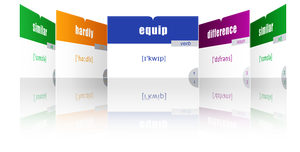


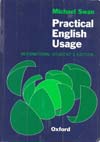

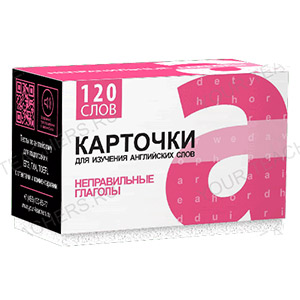
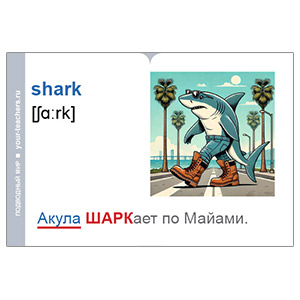
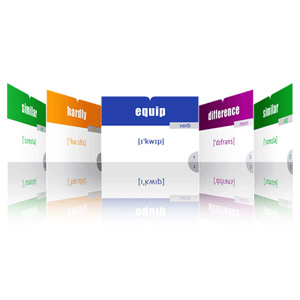

 Как правильно изучать английский язык по карточкам (статьи)
Как правильно изучать английский язык по карточкам (статьи)